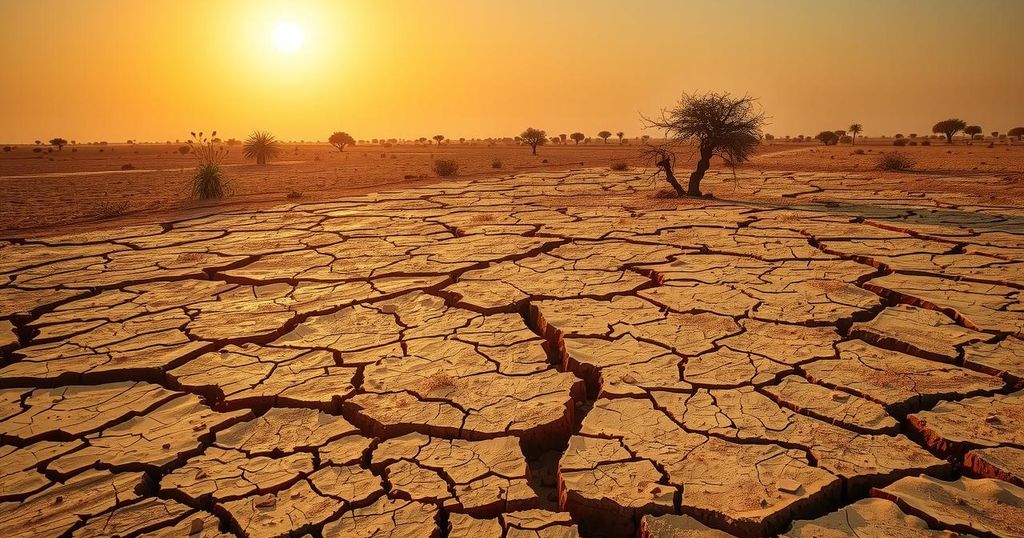A study reveals that the recent heatwave in South Sudan, exacerbated by climate change, disproportionately impacts women and girls, worsening existing educational disparities. Health officials have reported increased heat-related illness cases among students, underscoring the urgent need for climate action. The findings highlight the intersection of climate change and gender inequality in the region.
A recent study by World Weather Attribution indicates that the intense heatwave experienced in South Sudan last month, which resulted in a two-week closure of schools, was made at least ten times more probable due to climate change. The study highlights that women, particularly, bear the brunt of these harsh climatic conditions.
As temperatures soared to 42°C, dozens of students suffered from heat strokes, prompting health officials like Acting Minister of Health Aya Benjamin Warille to advise against outdoor activities and encourage fluid intake and cooling methods. However, many institutions lack proper cooling mechanisms, as they consist primarily of rudimentary structures without electricity. Reports stated that around twelve students collapsed daily in Juba prior to the school closures.
The adverse impact of school closures is particularly alarming for girls in South Sudan, where over 2.8 million children are out of school. The study asserts that heatwaves increase the likelihood of girls assuming household responsibilities—collecting water or cooking—rather than returning to education, thus exacerbating existing gender disparities in education.
Extreme heat compromises the body’s ability to regulate temperature, significantly raising the risk of heat-related illnesses, including heatstroke. This concern is especially critical for pregnant women, as elevated temperatures are linked to higher miscarriage and stillbirth rates, a serious issue in a country where the maternal mortality rate is staggering, at 1,223 deaths per 100,000 births.
Co-lead of the study, Friederike Otto, remarked on how systemic inequalities exacerbate the dangers posed by climate change. She noted, “Unyielding gender roles…means that in war-torn South Sudan, each of the now frequent heatwaves hits women more, deepening the divide between the genders.”
Moreover, the research assesses how anthropogenic climate change, primarily due to fossil fuel combustion, has intensified extreme temperatures. The results concluded that climate change increased the likelihood of such heat events and raised the temperature by approximately 2°C. This trend indicates that these extreme heat episodes, now increasingly common in South Sudan, will likely occur more frequently as global temperatures continue to rise due to insufficient emissions reduction efforts.
The recent findings underscore the severe implications of climate change on vulnerable populations, particularly women in South Sudan, who face heightened risks due to societal roles and responsibilities. As extreme weather events become more prevalent, urgent measures must be taken to alleviate their effects, ensure educational access, and address the gender disparities exacerbated by climate-related challenges. Comprehensive actions must include better infrastructure for education and health, as well as strategies to combat climate change effectively.
Original Source: earth.org




